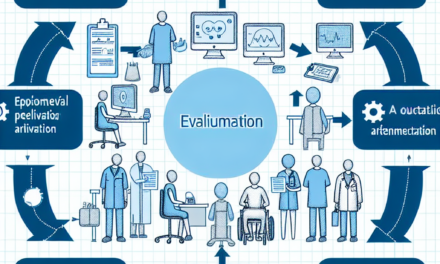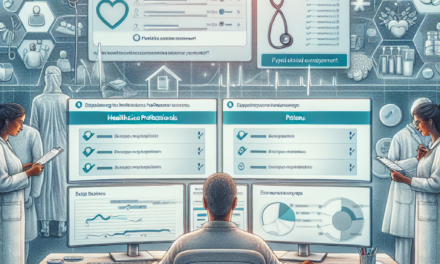Shattering Stigmas: Confronting and Conquering Depression
Depression is a pervasive mental health disorder that affects millions of people worldwide. Despite its prevalence, stigma surrounding depression often prevents individuals from seeking help and support. This article aims to confront and conquer the stigmas associated with depression by exploring its causes, symptoms, treatment options, and the importance of open conversations. By understanding and addressing these issues, we can create a more supportive environment for those affected by depression.
Understanding Depression: A Multifaceted Disorder
Depression is not merely a fleeting feeling of sadness; it is a complex mental health disorder characterized by persistent feelings of hopelessness, worthlessness, and a lack of interest in activities once enjoyed. According to the World Health Organization (WHO), more than 264 million people of all ages suffer from depression globally. Understanding the multifaceted nature of depression is crucial in dismantling the stigma surrounding it.
Types of Depression
Depression manifests in various forms, each with its unique characteristics and treatment approaches. The most common types include:
- Major Depressive Disorder (MDD): This is characterized by a persistent low mood and loss of interest in activities for at least two weeks.
- Persistent Depressive Disorder (Dysthymia): A chronic form of depression lasting for at least two years, often with less severe symptoms than MDD.
- Bipolar Disorder: Involves episodes of depression alternating with periods of mania or hypomania.
- Seasonal Affective Disorder (SAD): A type of depression that occurs at a specific time of year, usually in the winter months when sunlight is limited.
- Postpartum Depression: A severe form of depression that can occur after childbirth, affecting new mothers.
Each type of depression requires a tailored approach to treatment, emphasizing the need for accurate diagnosis and understanding.
Causes of Depression
The causes of depression are multifactorial, involving a combination of genetic, biological, environmental, and psychological factors. Some key contributors include:
- Genetics: Family history plays a significant role in the likelihood of developing depression. Studies suggest that individuals with a family history of depression are more susceptible to the disorder.
- Brain Chemistry: Neurotransmitters such as serotonin, norepinephrine, and dopamine are crucial in regulating mood. Imbalances in these chemicals can lead to depressive symptoms.
- Life Events: Traumatic experiences, such as the loss of a loved one, divorce, or financial troubles, can trigger depression.
- Chronic Illness: Conditions like diabetes, cancer, and heart disease can increase the risk of depression due to the stress and lifestyle changes they impose.
- Substance Abuse: Alcohol and drug abuse can exacerbate or trigger depressive episodes.
Understanding these causes is essential for developing effective prevention and treatment strategies.
Recognizing the Symptoms: More Than Just Sadness
Recognizing the symptoms of depression is crucial for early intervention and treatment. While sadness is a common symptom, depression encompasses a wide range of emotional and physical symptoms that can significantly impact daily life.
Emotional Symptoms
Emotional symptoms of depression can vary widely among individuals but often include:
- Persistent Sadness: A continuous feeling of sadness or emptiness.
- Loss of Interest: A marked decrease in interest or pleasure in activities once enjoyed.
- Feelings of Worthlessness: A pervasive sense of guilt or inadequacy.
- Difficulty Concentrating: Trouble focusing, making decisions, or remembering details.
- Suicidal Thoughts: Recurrent thoughts of death or suicide, which require immediate attention.
Physical Symptoms
Depression also manifests physically, leading to symptoms such as:
- Changes in Appetite: Significant weight loss or gain due to changes in eating habits.
- Sleep Disturbances: Insomnia or hypersomnia (excessive sleeping).
- Fatigue: Persistent tiredness or lack of energy, even after adequate rest.
- Aches and Pains: Unexplained physical symptoms, such as headaches or digestive issues.
- Psychomotor Agitation or Retardation: Restlessness or slowed physical movements.
Recognizing these symptoms is vital for individuals and their loved ones to seek help and support.
Breaking the Stigma: The Importance of Open Conversations
Stigma surrounding mental health, particularly depression, can be a significant barrier to seeking help. Many individuals feel ashamed or embarrassed to discuss their struggles, fearing judgment or misunderstanding. Breaking this stigma is essential for fostering a supportive environment.
The Role of Society in Stigmatization
Societal attitudes towards mental health can perpetuate stigma. Common misconceptions include:
- Weakness: Many believe that depression is a sign of personal weakness or a character flaw.
- Attention-Seeking: Some view individuals with depression as merely seeking attention or sympathy.
- Inability to Cope: There is a misconception that individuals should be able to “snap out of it” or cope without help.
These beliefs can discourage individuals from seeking help, leading to prolonged suffering and isolation. Education and awareness campaigns are crucial in changing these perceptions.
The Power of Personal Stories
Sharing personal experiences can be a powerful tool in breaking the stigma. When public figures and everyday individuals openly discuss their struggles with depression, it normalizes the conversation and encourages others to seek help. For example:
- Celebrity Advocacy: Celebrities like Dwayne “The Rock” Johnson and Lady Gaga have shared their battles with depression, inspiring many to seek help.
- Community Support Groups: Local support groups provide a safe space for individuals to share their experiences and connect with others facing similar challenges.
These narratives can foster empathy and understanding, creating a more supportive environment for those affected by depression.
Treatment Options: Finding the Right Path to Recovery
Effective treatment for depression is available, and it often involves a combination of therapies tailored to the individual’s needs. Understanding the various treatment options can empower individuals to take charge of their mental health.
Psychotherapy
Psychotherapy, or talk therapy, is a cornerstone of depression treatment. Various therapeutic approaches include:
- Cognitive Behavioral Therapy (CBT): Focuses on identifying and changing negative thought patterns and behaviors.
- Interpersonal Therapy (IPT): Addresses interpersonal issues and improves communication skills.
- Dialectical Behavior Therapy (DBT): Combines cognitive-behavioral techniques with mindfulness practices.
Research shows that psychotherapy can be as effective as medication for many individuals, particularly for mild to moderate depression.
Medication
Antidepressant medications can be effective for individuals with moderate to severe depression. Common classes of antidepressants include:
- Selective Serotonin Reuptake Inhibitors (SSRIs): Such as fluoxetine (Prozac) and sertraline (Zoloft), which increase serotonin levels in the brain.
- Serotonin-Norepinephrine Reuptake Inhibitors (SNRIs): Such as venlafaxine (Effexor) and duloxetine (Cymbalta), which affect both serotonin and norepinephrine.
- Tricyclic Antidepressants: An older class of antidepressants that can be effective but often have more side effects.
Medication can take several weeks to show effects, and it is essential to work closely with a healthcare provider to find the right medication and dosage.
Alternative Therapies
In addition to traditional treatments, alternative therapies can complement conventional approaches. These may include:
- Exercise: Regular physical activity has been shown to reduce symptoms of depression by releasing endorphins and improving mood.
- Mindfulness and Meditation: Practices that promote relaxation and self-awareness can help manage stress and improve emotional well-being.
- Nutrition: A balanced diet rich in omega-3 fatty acids, vitamins, and minerals can support brain health and mood regulation.
Integrating these alternative therapies can enhance overall treatment effectiveness and promote holistic well-being.
Creating a Supportive Environment: The Role of Family and Friends
The support of family and friends is crucial for individuals battling depression. A strong support system can provide encouragement, understanding, and practical assistance in navigating the challenges of depression.
How to Support Someone with Depression
Supporting a loved one with depression requires empathy, patience, and understanding. Here are some ways to provide support:
- Listen Actively: Offer a non-judgmental ear and allow them to express their feelings without interruption.
- Encourage Professional Help: Gently suggest seeking therapy or medical assistance if they are open to it.
- Be Patient: Understand that recovery takes time, and there may be setbacks along the way.
- Engage in Activities Together: Encourage participation in enjoyable activities, even if they may not feel like it initially.
- Educate Yourself: Learn about depression to better understand what your loved one is experiencing.
By providing a supportive environment, friends and family can play a vital role in the recovery process.
The Importance of Self-Care
Individuals with depression must also prioritize self-care as part of their recovery journey. Self-care strategies may include:
- Establishing a Routine: Creating a daily schedule can provide structure and a sense of accomplishment.
- Practicing Mindfulness: Engaging in mindfulness practices can help manage stress and improve emotional regulation.
- Setting Realistic Goals: Break tasks into manageable steps to avoid feeling overwhelmed.
- Seeking Social Support: Connecting with others who understand can provide comfort and reduce feelings of isolation.
Self-care is not selfish; it is an essential component of recovery that empowers individuals to take charge of their mental health.
Conclusion: A Call to Action
Confronting and conquering depression requires a collective effort to shatter the stigmas that surround it. By understanding the complexities of depression, recognizing its symptoms, and promoting open conversations, we can create a more supportive environment for those affected. Treatment options are available, and with the right support from family, friends, and professionals, individuals can embark on a path to recovery.
It is essential to remember that depression is not a sign of weakness but a medical condition that deserves compassion and understanding. By sharing our stories, educating ourselves, and supporting one another, we can break the cycle of stigma and empower those struggling with depression to seek help and reclaim their lives.
Let us work together to foster a culture of openness and acceptance, where mental health is prioritized, and individuals feel safe to seek the help they need. Together, we can shatter the stigmas surrounding depression and pave the way for healing and recovery.





